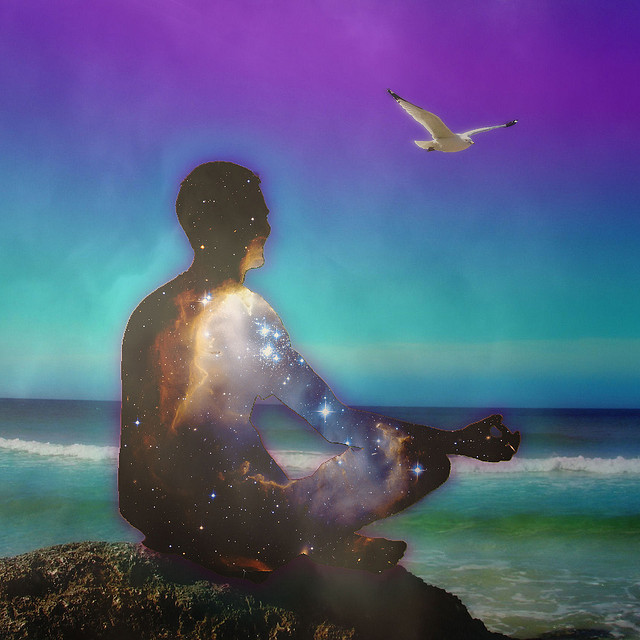I think we’ve have all had the experience of realizing that our mind is a crazy, raging mess.
We have stopped, become a little quiet, often while trying to fall asleep at night, and what we have noticed is that our own mind just doesn’t stop talking a lot of nonsense.
Unfortunately, for many of us we don’t differentiate that it is our mind talking crazy, nonsense, instead we think it is ourselves. We think we are our mind and it is our own selves that is making us crazy.
This is one of the best and most important aspects of Mindfulness Meditation—that we start to understand the fact that we aren’t the same thing as our minds.
Many people I have met complain that they struggle to listen to or hear their own intuition.
They kind of know it is there, but they aren’t quite sure how to predictably tune into it. Tuning into our own intuitive sense is a skill that needs to be developed, just like any other skill.
Unfortunately, for most of us it is a skill that was drilled out of us as children.
The school system, and often our own families, wanted us to behave versus acting on what we intuitively felt was right. Regaining our ability to tap into our intuitive sense of what is right and what is wrong for our minds and bodies forces us up against all of our childhood training about how we “should” act and how we “should” think.
This is why it is necessary to learn how to tap into sensory sensations and information in our own personal systems that are beyond the mind. The information that comes from thinking is just one form of sensory information. It is an important form of sensory information and we need it but most of us use it as the be all, end all way of deciding what is going on around us.
Thinking energy is very heavy and sticky. It is thick and weighted and mostly gets our attention first.
Whereas, intuitive sensory information can be lighter in nature. It can be more nuanced and sensitive and often we need to be quieter and stiller to hear it.
It is as if thinking information is the extrovert in the room and intuitive sensory information is the introvert in the room.
Neither is right or wrong—it is just that we need both.
This is why we need to train in Mindfulness Meditation, so we can learn how to steer away from the heavy, sticky thinking mind and feel into sensory information. There is a lot we can learn from our introverted intuitive senses and this can only be done if we know how not to be caught up in our extroverted thoughts.
However in my experience as an energy healer, there is also another force that prevents us from being able to tap into our own intuitive impulses—and that is having other energy that is not ours attached to us.
That last sentence isn’t an easy one for me to write.
In general, it is important to me to be pragmatic and a year ago I would have believed that just working with our own minds and attention was enough to train ourselves to act and think in any way we wanted to.
I believed we were in control of our own destiny and there was no such a thing as other energy blocking our own.
But in the last six months I have learned differently.
I have seen in my clients, myself and my family multiple situations where other energy has attached itself to people, making it very difficult for those people to “feel” like themselves and accurately get in touch with their own intuitive strength.
This is just another reason why using Mindfulness Meditation to increase our self-awareness is so important.
There is so much going on around us and inside us that is beyond the realm of the mind. We are not going to be able to use our cognitive reasoning to deal with all the challenges that come our way in an efficient manner.
We are sensory beings for a reason, because we can sense what is going on around us.
Starting to ask ourselves what skill we want to access in different situations is a great start to working with our own intuitive abilities.
We can check in with ourselves and wonder, “Do I want to think about this experience? Or do I just want to sense this experience?”
Learning the difference between the two is the trick to coming more in line with your own intuitive power.
~
Author: Ruth Lera
Editor: Sarah Kolkka
Image: Ian Burt/Flickr












Read 0 comments and reply